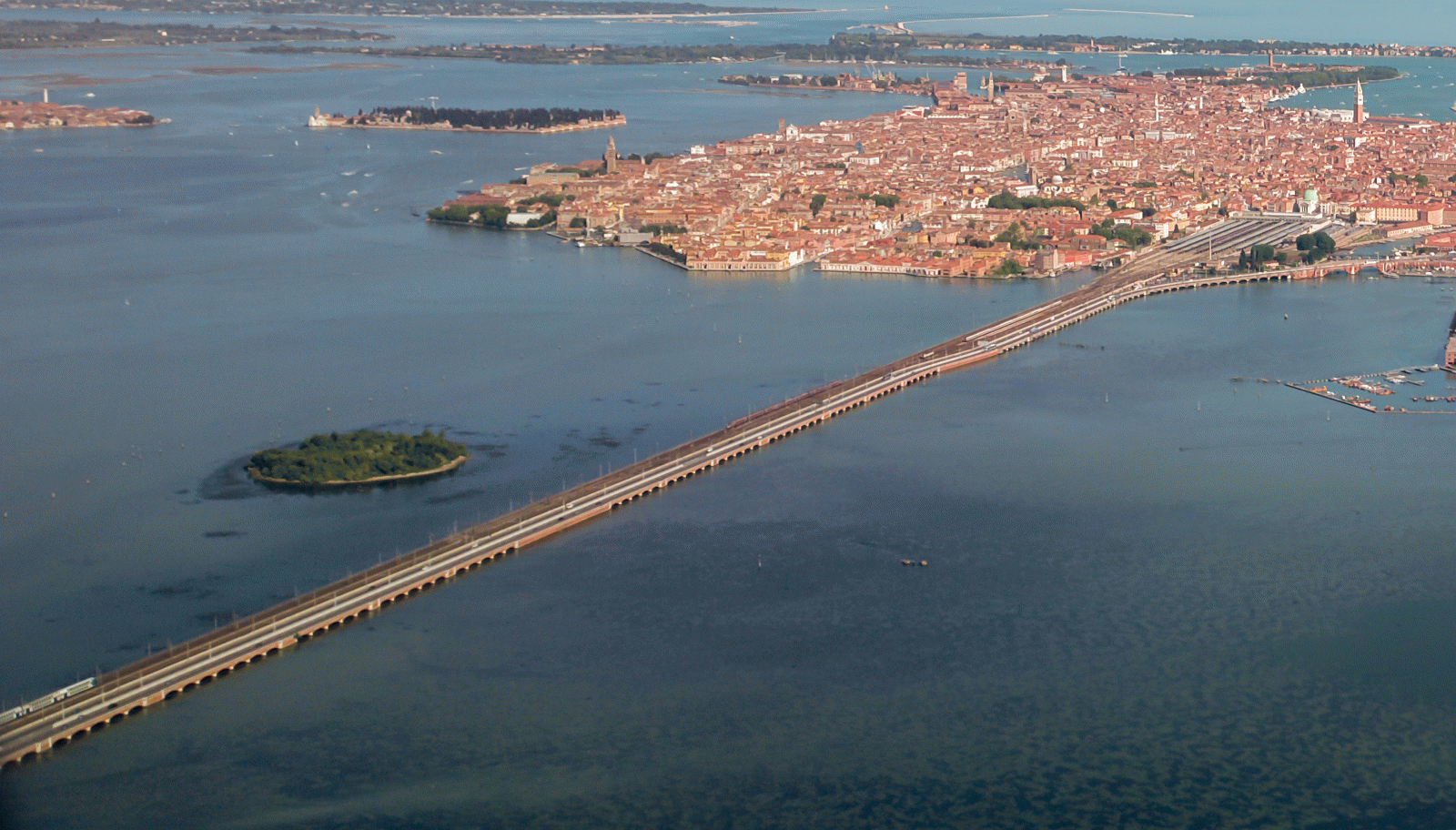KHI 2021+ Lecture Series
Eva-Maria Troelenberg: Trains on the Lagoon: Visual Constellations of Acceleration and the Possibility of a Modern Mediterranean

Ponte della Libertà and Ponte della Laguna, Venice (Photo: Wikimedia Commons/Didier Descouens).
What do images, visual techniques, and visual archives tell us about practices of transit and acceleration from the nineteenth to the twenty-first century across, to, and from the Mediterranean? This talk will use the example of Venice, looking at the period since around 1850 as an age of technified globalization and great acceleration: never before have natural and geographical spaces been more closely connected and more profoundly altered by mass movement and human interventions. The preliminary case study presented in this workshop stands for a larger project which will investigate visual histories of the Anthropocene in relation to the Mediterranean. Which infrastructures and sites have defined and enhanced movements and encounters? How are they documented in visual sources, or how do they relate to visual practices? This research takes a reflexive and realist point of view that places multiple Mediterranean histories in relation to different qualities of acceleration, from imperial warfare to industrialization, from tourism to migration and beyond. In light of the contemporary challenges of mobility, migration, or ecological change, it reads these factors as visual constellations of the Anthropocene. At the same time, this research seeks to define a strong position for visual studies within the ongoing dynamic process of critically theorizing the concept of the modern and contemporary Mediterranean beyond an essentialist or romantic 'Mediterraneanism.'
Eva-Maria Troelenberg is Professor for Modern and Contemporary Art History and Head of the Art History section at Utrecht University. She was PI of the Max Planck Research Group "Objects in the Contact Zone – The Cross-Cultural Lives of Things" at KHI Florenz – MPI from 2011–2018. She has taught Islamic and transcultural art history at the universities of Vienna, Zurich, at LMU Munich, and in the Cluster "Europe and Asia in a Global Context" at Heidelberg University, and has held a fellowship at the Munich Centre for Global History. Her main fields of interest include the history and historiography of cross-cultural art, the global history of museums and collections, as well as encounters between the Islamicate world and Europe after 1800. Eva-Maria Troelenberg has received the Heinrich-Wölfflin award and the Hochschulpreis der Landeshauptstadt München for her research. Her publications include the co-edited volumes Collecting and Empires and Visualizing Otherness in Modern Italy, a special issue of the Mitteilungen des Kunsthistorischen Instituts in Florenz.
This talk is part of the KHI 2021+ Lecture Series, organized by the doctoral and postdoctoral fellows, in collaboration with scientific staff and senior scholars of the Institute. It is envisioned as a forum to reflect on the futures of Art History through conversations with innovative voices in the discipline, working in different areas but sharing methodological concerns.
14. Januar 2021, 15:00 Uhr
KHI 2021+ Lecture Series
The event takes place online.
Hinweis
Diese Veranstaltung wird durch Fotografien und/oder Videoaufnahmen dokumentiert. Falls es nicht Ihre Zustimmung findet, dass das Kunsthistorische Institut in Florenz Aufnahmen, auf denen Sie erkennbar abgebildet sein könnten, für die Veranstaltungsdokumentation und Öffentlichkeitsarbeit (z.B. Social Media) verwendet, bitten wir um eine entsprechende Rückmeldung.


